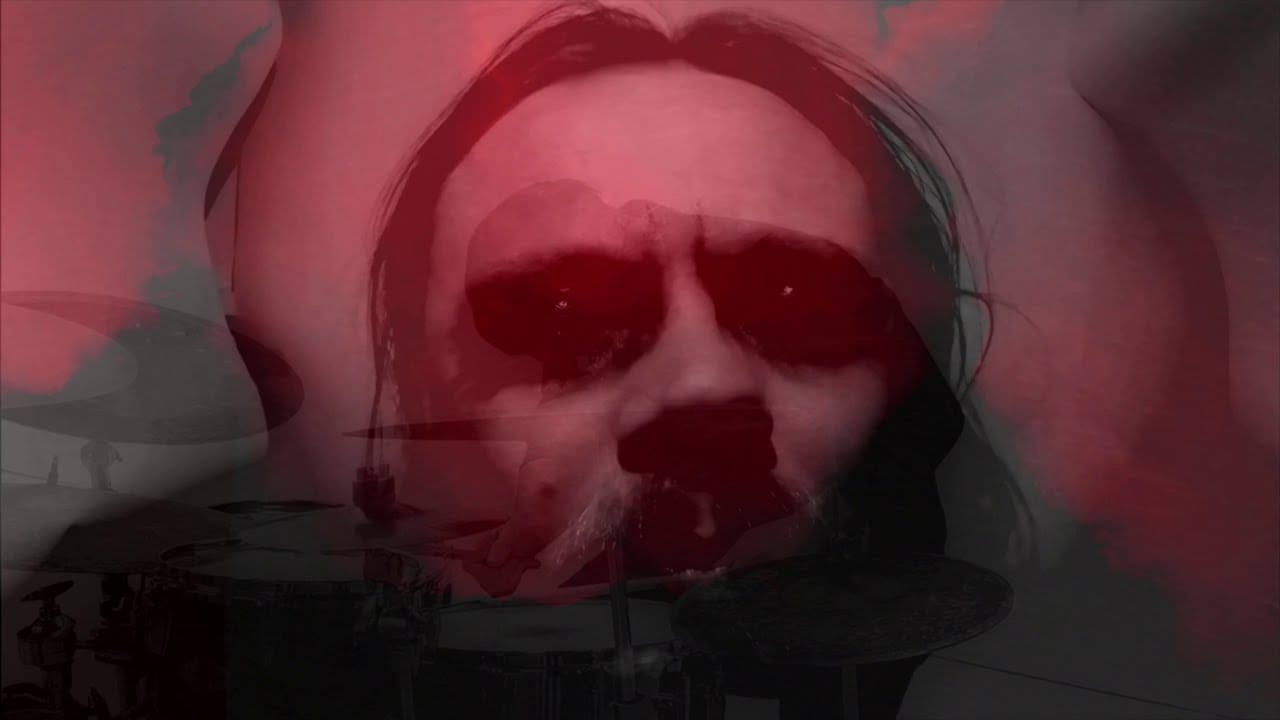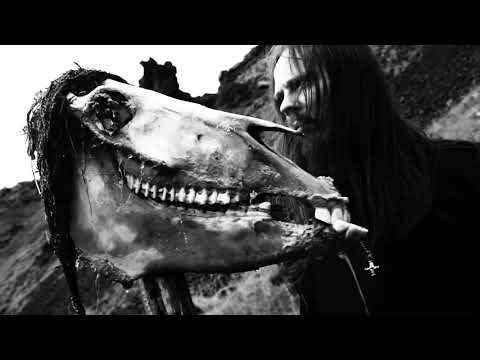With his two bands FORTÍÐ and KATLA. Einar „Eldur“ Thorberg will release not just one but two albums this fall. In this FORTÍÐ-KATLA.-double-feature Einar explains which one was the bigger challenge, how the FORTÍÐ-album changed during the work and what bothers him as an Icelander about „all this damn darkness“ so much that he named the KATLA.-album after it („Allt þetta Helvítis Myrkur“).
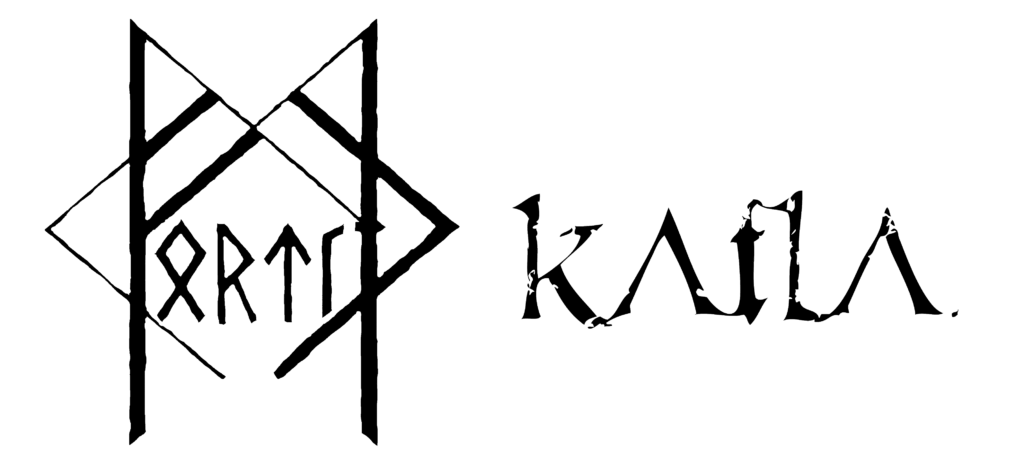
We are talking in special times – I hope you are doing well despite the Corona situation!
Yes, I am doing quite well thank you. Times are special indeed but I like to focus on the positive thing this is doing to our environment and hoping our carbon emissions won’t increase over the top once this is over.
What is the current situation in Iceland in this respect? Do you feel save, does the pandemic affect you in any way?
I basically think the way people are handling this is idiotic. I do not trust people in general. I seclude myself even more now in general than I used to when I was younger. So, for a cynic asshole like myself, this hasn’t affected my life too much. I have to occasionally shop food of course so I wear my mask like a good citizen. But otherwise, I am not socializing too much anyway so nothing has really changed. My wife however is Spanish and her family is in Spain so that has been the most difficult part for us by far.
You moved back to Iceland not that long ago. Are you happy about this decision also in hindsight of the corona situation in Norway at the moment?
Let’s just say I made the right decision. I did what had to be done. It’s hard to imagine how life would have been in Norway during this pandemic but I think they are handling this thing much better than Iceland. That comes as no surprise to me actually.
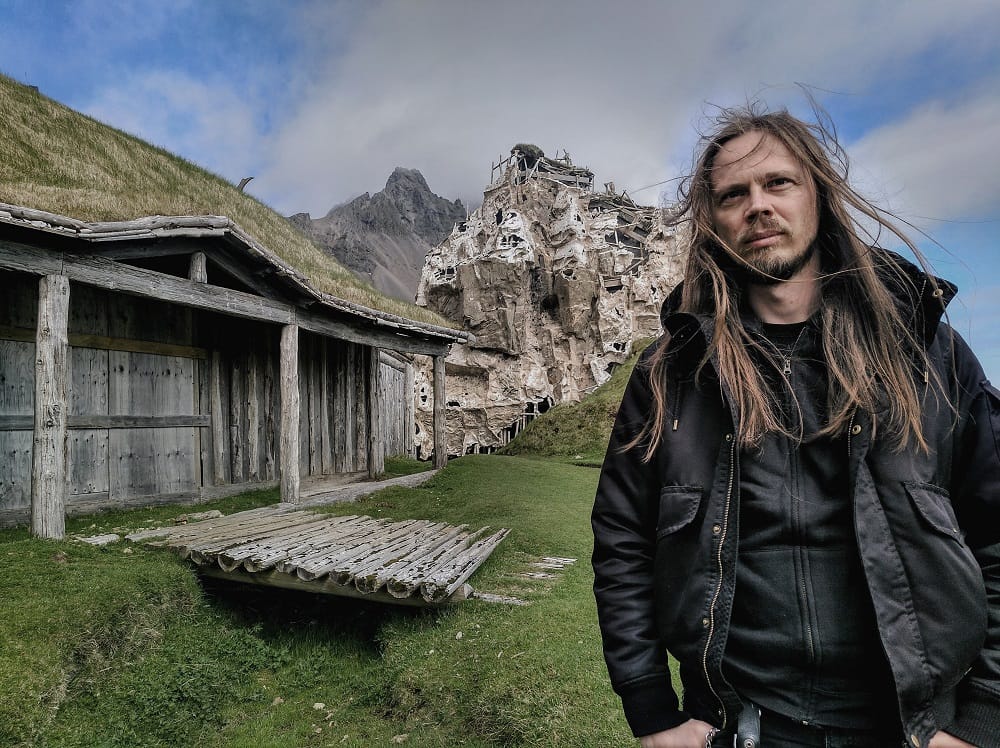
How does Iceland feel without tourists? Rather depressing, because the country depends on it economically, or also refreshing, because overtourism is a big issue here?
For me personally it’s absolutely great to be free of all this tourism. We for example recently shot a FORTÍÐ music video all over the country where there were no people around to interfere. The silence out in the nature with noone around is pure magic! But I have friends and family members as well who depended on the tourism and hit a big wall here, so I am of course not happy for their sake.
You will release two albums within the next weeks. Did you also work on both albums at the same time, or is the simultaneous release a coincidence?
It’s kind of a mix between coincidence and a marketing strategy to be honest. The FORTÍÐ-album got a bit of a kick in the ass and some deadlines by the time we were finishing the second part of „World Serpent”. We thought it would be a strong move to keep it as close to the KATLA.-album as possible. But I would not have rushed the FORTÍÐ-album to a point where I left something unfinished or sloppy “yeah whatever” touches. It was already well on the way. I have been working on both albums for years and yes, sometimes at the same time.
Writing, producing and releasing an album is an exhausting, nerve-racking process – does it increase with two albums or does it not make a difference anymore?
It sure is a nerve-racking process! It came to a point where I decided to send the FORTÍÐ-album over to Zero Gravity Studio in Greece for mixing. I simply did not have the time or energy to finish it myself. It turned out to be a great decision. Terry Nikas is an extremely talented guy and we work well together. He had already done some mixing for me before. This guy also plays in Scar of the Sun and handles sound for SepticFlesh so he knows his stuff for sure. The album then got mastered by Phsycon Nyne from SepticFlesh so there is a big Greek touch on this thing. But recording, mixing and mastering the KATLA.-album was enough to cause me some sleepless nights and frustrations. I feel this has been a big accomplishment for me but I need to at least recharge my batteries before considering doing something like this again. (laughs)
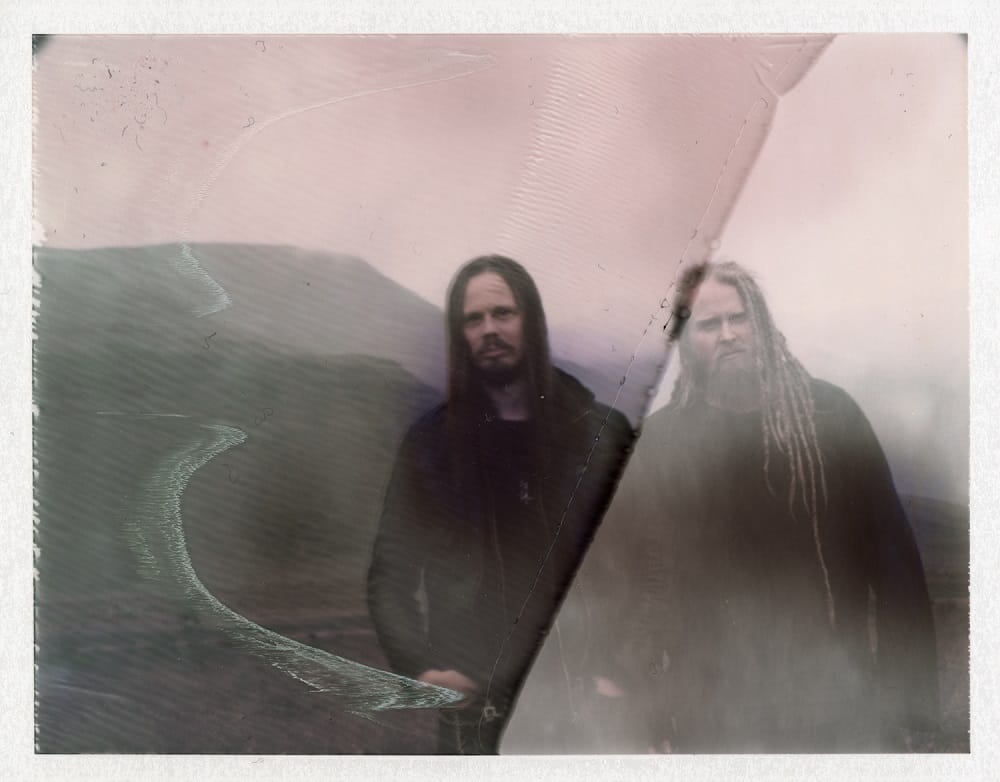
That’s a nasty question, but which album are you more excited about – or the other way around: which album are you more relieved that all the work is done?
I am a bit more excited about FORTÍÐ’s album because this is the big step up that I have needed for many years. FORTÍÐ has been suffering from all kinds of misfortune in the past and now at album number six I feel it’s finally gaining a status, of course with the help of Prophecy as well. KATLA. has had a pretty smooth run from day one. I am really relieved that both albums are done. I can now turn my focus on building my first house and a proper recording studio!
Which one was more demanding, more strenuous – and why?
That is a very tough question. The first part of FORTÍÐ’s duology was a difficult and slow process due to the fact that I had already moved back to Iceland and the rest of the band was in Norway. When we finally finished that first part, there was no spirit left in the band. It had been fading away for years anyway but that’s another story. The second part was an quick and easy and very enjoyable process. The KATLA.-album however was a lot more work for me since I continued that work from point zero and all the way to the end without any outside help.
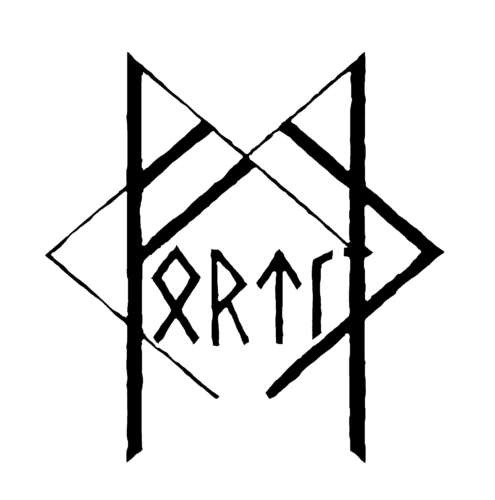
Let’s first talk about FORTÍÐ. You dissolved the band in their old lineup when you moved to Iceland. Many bands today – also before Corona – act across borders and continents, via digital communication. Why was that not an option for you?
That’s the common misunderstanding here. We did work online because I had already moved to Iceland before we started. But there was no dedication or real interest from the other members to see this through. They were busier with other things and this was way down on their list of priorities. So, when I finally gave up on dragging them behind me and mentioned us disbanding, they totally understood. Some were even relieved. We are still good friends so there is no bad blood and no drama. Also note that when KATLA. started, I was still living in Norway. I recorded the guitars and bass for our debut album in Norway. I even still work online with both drummers from KATLA. and FORTÍÐ. Neither bands currently have a rehearsal place. So, this has actually become the preferred way for me to work.
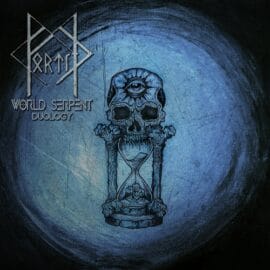 Nevertheless, the first half of he album is recorded with the old lineup. Is that due to the circumstances, did you just have one half finished and you added the rest alone, or was that a deliberately planned part of the album concept?
Nevertheless, the first half of he album is recorded with the old lineup. Is that due to the circumstances, did you just have one half finished and you added the rest alone, or was that a deliberately planned part of the album concept?
Basically, it started as a short sightedness on our part. I went to Norway to for two weeks to work with them on recording 4 songs. Then I later made an intro and actually an outro that I have now thrown away. But the overall 6 tracks were only 30 minutes long and that doesn’t really qualify today as a full-length album. Labels with financial wits are not much into releasing EP’s today. This album was basically on halt for a year! I took a good time to think of the best solution for it and after a lot of contemplation I made the best decision I could have made and I’m very pleased with how that turned out. I added the second part and thus the World Serpent Duology. It also represents a bridge of periods of FORTÍÐ’s history so it’s as very special release for me.
Stylistically, the album ranges from Thrash to Black Metal – although the second half of the album is more Black Metal oriented. Is this due to the restructuring of the band, does it show where the journey will go musically in the future, or is this solely due to the album concept?
The Thrash Metal element has always been with FORTÍÐ since the first album. What we basically did here was to bring that element to the spotlight. This is a sidestep and although I am pleased with the outcome, this is not the path I will be taking all the way. The second part is more leaning towards the future sound of FORTÍÐ, but having said all that… These are just my feelings now. If I feel differently about it in the future, I will simply change it. I am very self-conscious about not trapping FORTÍÐ in any kind of a box. It’s all about the freedom to do what we want.
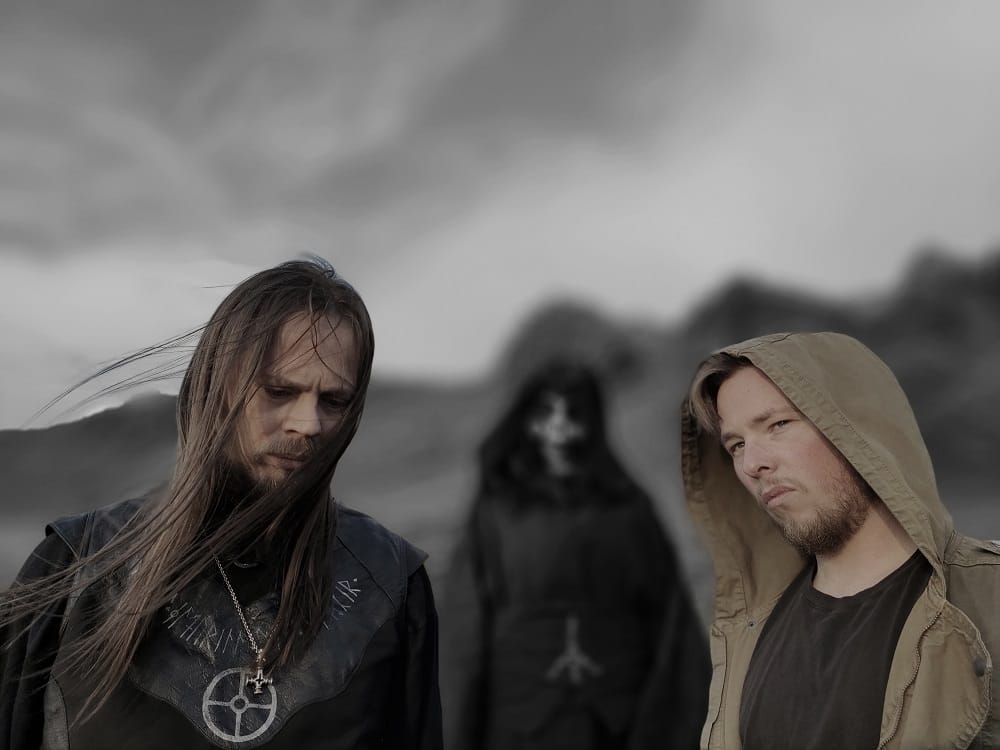
With FORTÍÐ you do not limit yourself to Viking themes and old literature. What do you personally think about Viking-Metal-bands like Amon Amarth, who focus very strikingly on Vikings, but also bands like Wardruna?
Let me start by saying that FORTÍÐ never had any songs about Vikings. I am not so sure that Wardruna ever had any songs about Vikings either but maybe I’m wrong. I’m not familiar with their entire discography yet. No good reason why because I like them. I saw their very first concert in the Oslo Viking museum. One of the best live experiences I’ve ever had. Small and intimate concert. I have never been a fan of Amon Amarth however. I’ve seen them live as well. They’re not bad musicians. It’s just that their music does nothing for me. I don’t see anything wrong with focusing on Vikings but it really never became our thing. For those who don’t know, let’s talk about Vikings a bit… They’re documented sagas are from 793-1066 AD according to Wikipedia … who we all know and trust. (laughs) They raided and pillaged and raped. Northern mythology is not about Vikings but about the worlds of gods and men and other creatures such as giants and dwarves and elves. So when FORTÍÐ was doing the Völuspá poems for example (That Wardruna also did later), there is no mentioning of Vikings. In Ragnarök, men battle each other to death and for sure in everyone’s mind the most victorious ones there would be the Vikings. But to be a Viking meant to “Go to Viking” which basically means to go on a raid. There are no Vikings today. To call us Northern people Vikings is not quite correct. We have only fantasy cosplays and reenactments of the past. This culture is sadly also more of a tourist gift shop thing than anything else.
But the album contains a song called „Pandemic“ … does the title refer to the Corona pandemic or did it at least come up during the pandemic, or was it really a coincidence?
I was in the middle of the lyrics writing process in January/February when I heard of the outbreak in China. That inspired me and I wrote the lyrics about plagues in general such as Black Death or the Spanish Flu. Microbes that threaten human existence. I did of course not know that this particular Corona virus would become such a huge thing as it did.
FORTÍÐ have signed with Prophecy Productions earlier this year, just like KATLA. Did you profit with FORTÍÐ here from the deal with Prophecy you got with KATLA.?
Without going into any confidential details of our contracts, this is for sure the most lucrative setup of my career that is now spanning 25+ years as a musician. Having both bands on the same label is a good thing. It takes time to synchronize professionally with new people and Prophecy is starting to become familiar and I am aware of how they work. They are probably starting to know me a bit as well and well, I’m not easy, I can tell you that. (laughs)
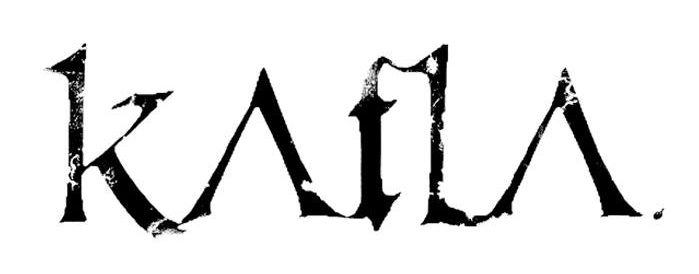
You are also at KATLA. responsible for music and lyrics. How do you separate here, which idea will end up with which band? Do you sort the ideas stylistically, or do you work specifically for one band or another and use the result accordingly?
Musically, when I come up with a new song idea I just know where it belongs. I know the difference in style between my bands. When I write lyrics, which is not the same kind of flow for me (I write like 1 lyric every 10 songs), I write them to the music. On some occasions I have written music to lyrics but that is not my preferred way of working. It’s more demanding I feel. Basically, when I have written the music and recorded a demo of it is when I start working on the lyrics.
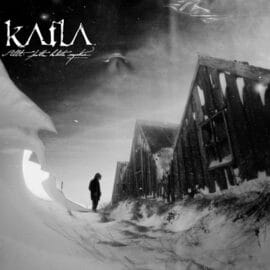 Some of this album’s core composition reach back in time for more than a decade and were born out of spontaneous rehearsal room-sessions that were only now given final shape. Were those jams with rubber back then and what motivated you to dig out those old demos again instead of writing new material?
Some of this album’s core composition reach back in time for more than a decade and were born out of spontaneous rehearsal room-sessions that were only now given final shape. Were those jams with rubber back then and what motivated you to dig out those old demos again instead of writing new material?
14 years ago I had this idea of writing music to already laid down drums. I called Guðmundur up and asked him to come to the studio and record drumbeats to no music for an hour or so. He did that and I instantly took the recordings home and started composing the rest of the instruments. It resulted in a 6 song demo. And here is a funny fact that I have never told people before: I actually sent this demo to Prophecy at the time but got no reply! Guðmundur was happy with the music but he wasn’t really happy with his drum performance. Of course, this idea was alien to him and he probably expected something different to happen from this. This was also around the time that Sólstafir were starting to make a big name for themselves so he didn’t really have the time to think about this little side experiment. We revisited those songs before this album and decided to give a new life to four of them. Two of them is on the album. One of them is the title track actually. The other two are on the bonus/special edition/deluxe/blabla-EP.
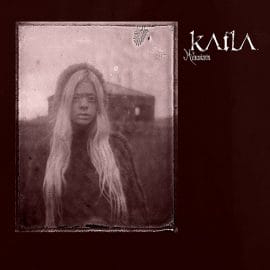 The album sounds much more doomy and harsh than the debut – would you subscribe that, and is this a result of these old ideas?
The album sounds much more doomy and harsh than the debut – would you subscribe that, and is this a result of these old ideas?
I agree and it is a conscious decision. The old songs really have nothing to do with that as such. Have you heard Potentiam? We have been making music like this since the late 90’s. It’s just starting to take a much more focused shape now. And regarding the debut, the production of that album was out of our hands. That is why the sound is not quite what we are about but we can still stand behind it.
You were responsible for all recordings, mix, master, and cello-samples. On the one hand this gives you the possibility to influence everything yourself, on the other hand a „controlling authority“ is omitted: in the past bands used to entrust themselves to producers.How do you see that, doesn’t it also have disadvantages to do without this expertise and external opinion?
Yes, it can really go both ways doing everything yourself. I think this played out nicely but it is hardly recommended. I’ve had professional mixing engineers working for me that say they won’t touch the mastering. They say it takes special ears for that. Then others talk about the mastering process being demystified with today’s technology. I actually took a short online course in mastering before venturing into this album. It wasn’t much but it paid off big time. Having more sets of ears is of course always beneficial. But then again, I think what you hear now is as personal as it gets. It’s one vision through the entire thing. I’m not sure an outsider would have necessarily understood this vision. I think the overall sound is unique because of this. Without a doubt, sound productions are in the end always a matter of personal taste.
The album is entitled „Allt þetta helvítis myrkur“ („All this damn darkness“) – what are you referring to with that?
The incredibly long and dark Icelandic winters.
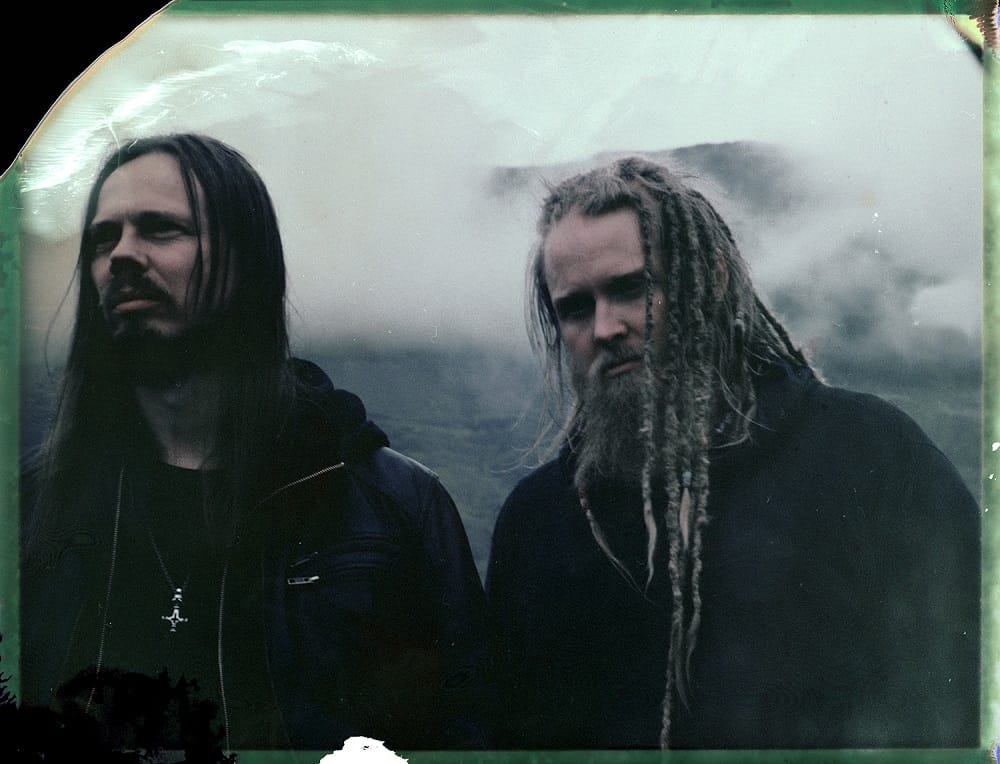
As an Icelander, shouldn’t you at least be able to cope well with darkness? After all, it’s almost continuously dark in your country at the moment, isn’t it?
The days are starting to shorten now considerably. In just a few weeks we will have somewhat of a daylight for 3-4 hours and it will stay like that for around 3 months. Some cope better than others in this. My Spanish wife for example has a really difficult time with this. A lot of Icelanders do as well.
Pandemic and also the darkness of the Icelandic winter … even if you like darkness, it is certainly a challenge. What is your method, your tip to get through this winter mentally healthy?
The extreme lack of sunlight results in lack of Vitamin D which is not found in most food. But for this we take it in pill form and also eat salmon and tuna. Staying active and productive is another crucial part. If you’re lazy you will quickly start to rot away in all this damn darkness.
Thank you for the interview! Please let us do a short brainstorming in the end of this interview. What comes in your mind first reading the following terms:
A hobby away from music: Chess, video games, movies.
Donald Trump: A big orange ball of fun. Check out my stupid video! https://www.youtube.com/watch?v=cGb4aDPLb5E
Vikings: A thing of the past that recently has become a distorted pop culture
Your favorite album at the moment: Insomnium – Winter’s Gate. Released in 2016 but I’m slow like that.
Northern Lights: Beautiful and inspiring every time
FORTÍÐ and KATLA. in 10 years: Same shit, different year … hopefully
Once again thanks for your time. The last words are yours – is there anything left you want to tell our readers?
If you are actually still reading this then thank you for your interest and check out the websites of KATLA. and FORTÍÐ on facebook where the real action is. And thank you Moritz for the interview!
Dieses Interview wurde per E-Mail geführt.
Zur besseren Lesbarkeit wurden Smilies ersetzt.
